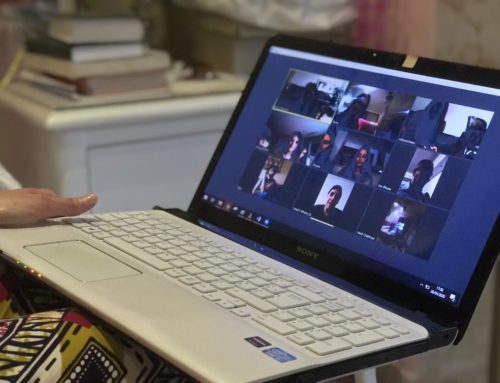
When being criticized, do you get defensive and go on the attack? While standing up for your cause isn’t a bad thing, Peter Panepento talks about how a proactive approach with transparent storytelling is better in the long run. ~Kristina
Guest Post by Peter Panepento of Panepento Strategies
When was the last time you changed a mind by being defensive?
I’m going to venture to say that it hasn’t happened to you very often, if at all.
That’s because playing defense isn’t a smart strategy when you’re trying to advance an argument or an agenda.
It doesn’t work for politicians. It doesn’t work in personal relationships. And it certainly doesn’t work for charities.
That’s why I’m surprised that one of the nonprofit world’s smartest marketing minds is choosing to play defense with his new effort to improve the way the media covers nonprofits.
Dan Pallotta has become a folk hero for many in the nonprofit world, thanks to his now-famous 2013 TED Talk video, which challenges the longstanding ideas that charity leaders shouldn’t earn competitive salaries or invest in marketing and advertising. His crusade against the “overhead myth” has fueled debates and even emboldened organizations like the BBB Wise Giving Alliance and Charity Navigator to rethink the way they rate and present financial information about charities.
Yet Pallotta’s newly created Charity Defense Council — an organization that has been founded with the bold goal of changing the way that people think about changing the world — is taking a confusing approach as it tries to establish itself as a voice for charities.
The Charity Defense Council recently made headlines for its scathing rebuke of an investigation by Pro Publica and NPR into the American Red Cross’ relief efforts in the wake of the Haiti earthquake.
I won’t get into the specifics of the report — or the Council’s criticisms — here.
But as someone who has worked in the media and who advises charities on media relations, I’m comfortable in saying that the Council has chosen to fight the wrong battle.
The Red Cross has a checkered history when it comes to managing large-scale disaster response. And when you raise nearly $500 million to respond to a disaster, it’s not out of bounds for the media to want to make sure that you delivered on your promises.
What’s more, he’s chosen to take on two well-respected nonprofit media organizations — organizations that have reputations for thorough reporting.
There’s an old saying that you “never pick a fight with a man who buys ink by the barrel and paper by the ton.” And while Pro Publica doesn’t use ink and paper, the Charity Defense Council is taking a huge risk by trying to poke holes in its reporting.
There’s a much more effective way to start changing the way people view charities: start playing offense.
The Charity Defense Council has an opportunity to build a network of savvy charities that understand how to tell their stories — both to the media and the public.
It can be training nonprofit leaders on how to position their good work and how to demonstrate their impact. It can use its platform to showcase these stories and shine light on innovative thinkers who are trying new approaches to old problems.
The media takes its role as watchdog seriously. And, frankly, the nonprofit sector needs groups like Pro Publica to help identify the bad actors and push big charities like the Red Cross to be more transparent with the public.
When you challenge that role, you’re immediately on the defensive. You’re reacting to negative stories rather than telling your own story in your own words.
And if the nonprofit sector is really serious about getting its story out there and challenging old assumptions, it needs to stop reacting and start being aggressive about telling that story.
The Charity Defense Council has an opportunity to lead that effort — to become a resource for advancing that agenda by collecting and promoting stories that shine a positive spotlight on the sector.
It could actually position itself as a resource for reporters — rather than a foil.
Imagine if there was a go-to source for reporters who are looking for profile subjects — or when they are writing or airing their annual stories on year-end giving. The Council could fill that role — and teach reporters rather than scold them.
It could also teach charity leaders how to become more effective storytellers and provide resources for helping them show their impact.
That’s playing offense. And that’s what will ultimately change minds.
In the meantime, though, nonprofit communicators shouldn’t wait for the Council or another organization to come riding in on its white horse.
Every charity has the ability — and really, the responsibility — to be honest and open about what it does and how it does it.
If your nonprofit can be more effective in highlighting your outcomes and more transparent about what’s working — and even what’s not working — you’ll be less likely to find yourself in the crosshairs of a Pro Publica or an NPR in the first place.

Peter Panepento
Peter Panepento is principal at Panepento Strategies, a full-service content, digital, and social strategy firm for nonprofits and socially-minded companies. He was formerly an assistant managing editor at the The Chronicle of Philanthropy, where he led its transition into digital journalism and social media — a transition that included the creation of some of the nonprofit world’s richest online communities, the launch of a highly profitable webinar series, and the creation of new digital products such as the How America Gives giving database.





